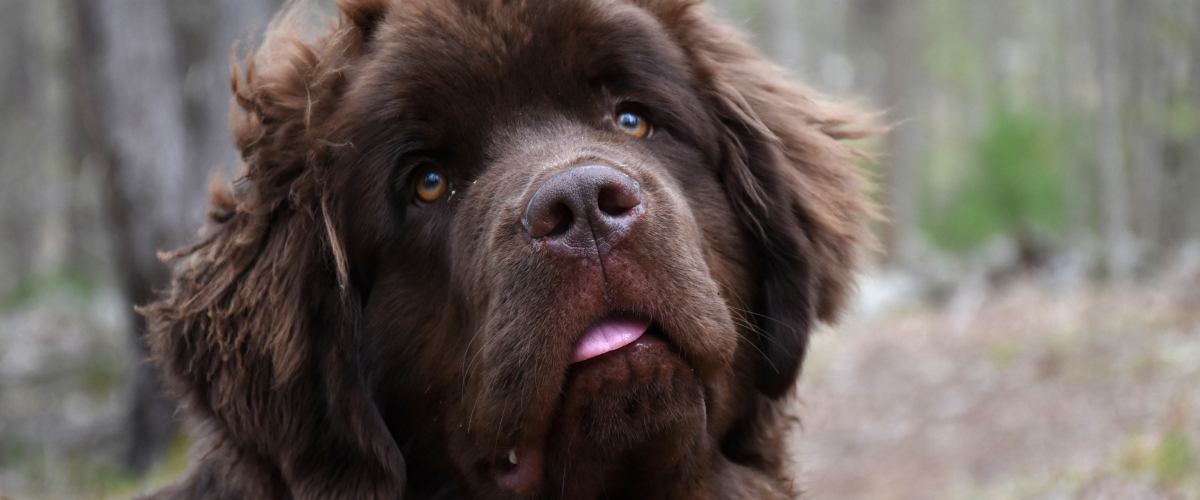Today is National Newfoundland Dog Day! To celebrate the date, let’s learn more about this gentle giant!
Equally at home on land and in the water, these sweet giants are terrific family pets if you have space for them! Despite their size, they are extremely mellow dogs who don’t require a lot of exercise.
Their gentle spirits make them fine, tolerant playmates for children, but behind their soulful eyes is the mind of a keen watchdog!
Appearance
Frequently featured on lists of the largest dog breeds, Newfoundlands are strong, big-boned, and muscular, their enormous heads resting near an adult’s hip or higher for easy petting. They weigh 100–150 pounds.
Big and floofy, a Newfoundland is basically a 150-pound teddy bear.
While all dogs have a little bit of membrane between their toe pads, Newfoundlands actually have quite pronounced webbed feet to help them paddle easily through the surf.
Temperament
Few dogs are as sweet, loyal, and laid-back as a mature Newfoundland. Most of the time, the dog is content to nap while life buzzes all around. Friendly and affectionate, but not overly rambunctious, they often like to be “on” their people, leaning against them or lying across their feet. Yes, that includes babies.
But don’t mistake this mellow vibe as laziness! Newfoundlands are people pleasers and natural working dogs. They have high IQs and respond well to positive reinforcement, clear cues, and obedience training.
While you’ll sometimes hear a rumbling woof or two during playtime or to get your attention at dinner, a well-trained Newfoundland is a sentry!
It’s ideal to begin training and socialization as soon as you bring your puppy home. Newfoundlands have a prolonged adolescence state of up to two years, so giving them obedience guidance right way enables better socializing and deters undesirable behaviors.
Living Needs
Whether you bring a Newfoundland into your apartment is totally dependent on how much room you want for yourself! So in most instances, she’s much better suited to a home where there are cozy observing-the-world spots, as well as ample space for walks or galloping after family members.
They need a moderate amount of exercise—up to 30 minutes daily—and are happy to take walks, not runs, with their owners.
Care
Get ready to hone your styling skills, because a Newfoundland dog requires a lot of grooming!
Their coat benefits from being brushed regularly, and there’s extensive shedding about twice a year to contend with as well. Known as a “blowing coat,” she’ll shed primarily in the fall and spring and will need to be brushed daily to control it.
Your Newfoundland will also need regular nail clipping and ear cleaning, along with frequent dental care throughout the week.
And be sure to always have a towel handy to soak up all the drool!
Health
Because there’s a potential for structural and joint problems, be diligent about helping your Newfoundland maintain a lean physique. Consult your vet for a staged-growth diet and exercise plan. Controlled feedings also help minimize bloating.
While Newfoundlands tolerate warmer weather, they should never be left outside in it for extended periods. Their double coat makes it difficult to handle. The undercoat provides some ventilated cooling, but overall, they’ll overheat quickly.

